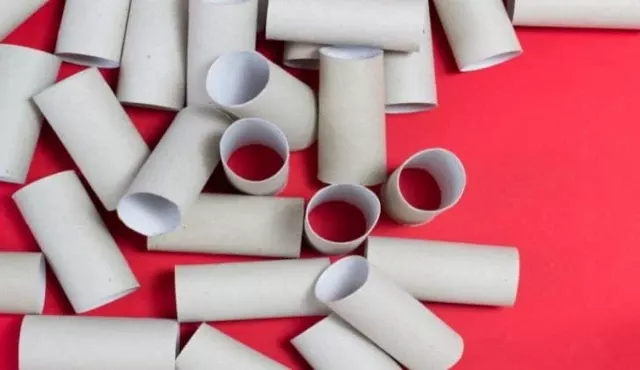Recently viewed products
Borrar todo
Recycling is a fundamental aspect of waste management, allowing for the recovery of valuable resources and reducing the negative impact on the environment. In many cases, paper is an ideal material for recycling, contributing to the reduction of tree consumption and minimizing our ecological footprint. However, not all types of paper are suitable for recycling in the same way. That's why the question about recycling toilet paper and paper towels arises surprisingly often.

Recycling is a fundamental element of waste management, allowing for the recovery of valuable resources and reducing the negative impact on the environment. In many cases, paper is an ideal material for recycling, contributing to the reduction of tree consumption and minimizing our ecological footprint. However, not all types of paper are suitable for recycling in the same way. That's why the question about recycling toilet paper and paper towels arises surprisingly often.
Toilet paper, as the name suggests, is dedicated to personal hygiene and therefore exposed to various types of contamination. Due to its daily, single-use application, this material is usually saturated with substances that hinder the recycling process. Bacteria, viruses, or other microorganisms present on used toilet paper are not safe for the workers responsible for the recycling process or for the quality of the products obtained from this process.
Another significant aspect is the fact that toilet paper is usually designed to dissolve in water. As a result, after contact with water, toilet paper fibers become short and weak, resulting in their low recycling value. Therefore, even if toilet paper were uncontaminated, it still would not be suitable for the recycling process due to the poor quality of the fibers that cannot be effectively processed into new paper.
Both for hygiene reasons and the low quality of the material, toilet paper is not suitable for recycling. An alternative to traditional disposal can be composting. Toilet paper, due to its biodegradability, can be safely composted, contributing to the production of valuable compost that can be used for gardening purposes. Therefore, instead of treating used toilet paper as waste, we can transform it into a useful resource for our gardens while reducing the amount of waste going to landfills.
Paper towels, similar to toilet paper, are commonly used in everyday life. Their purpose is to absorb liquids, remove dirt, or grease. Therefore, after use, they are often saturated with various substances that can hinder the recycling process.
In order for paper towels to be eligible for recycling, they need to meet certain conditions. Firstly, they should be clean and dry. This means that towels used for drying hands, faces, or for cleaning surfaces covered with food or oil are not suitable for recycling. These substances may contain bacteria, viruses, and other contaminants that can be harmful to recycling workers and may affect the quality of the end products produced in the recycling process.
The fiber structure of paper towels is also important. Like toilet paper, they are made from short-fiber paper. Therefore, even if the towels are clean and dry, their recycling value is limited. Short and weak fibers cannot withstand the intensive recycling process, which involves grinding and mixing with water to create paper pulp.
While toilet paper and paper towels are not suitable for recycling due to hygiene limitations, short fibers, and additional substances, there are various alternatives that help reduce their environmental impact. By choosing products made from recycled materials, sustainable sources, composting paper, or using alternatives, we can contribute to a sustainable future. It is always important to remember that our consumer choices matter and that every small change can help protect our planet.